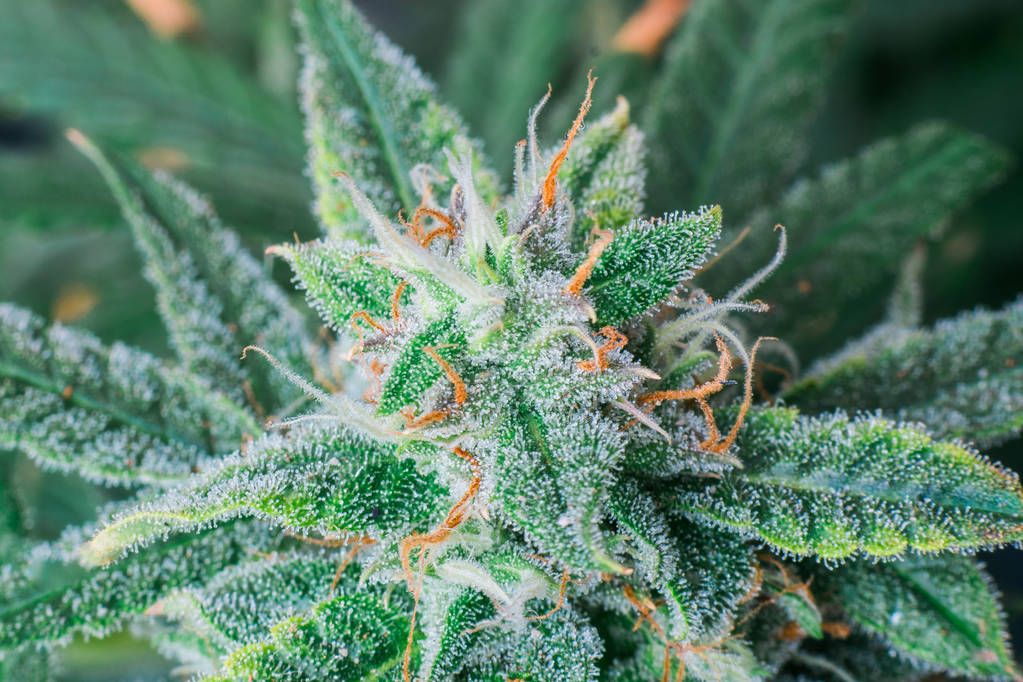The full text of the Cannabis Administration and Opportunity Act (CAOA) has been released.

Senate Majority Leader Chuck Schumer, along with 17 cosponsors, formally introduced the CAOA today. The measure proposes to remove marijuana from the list of controlled substances, allow expungement of past offenses, and establish federal tax and regulations for legal marijuana sales.
The sponsors have now made the full text of the measure available, which you can access by clicking here. They have also provided a detailed summary, available below:
Public Health
- Establishes a Center for Cannabis Products within the Food and Drug Administration (FDA) to regulate the production, labeling, distribution, sales and other manufacturing and retail elements of the cannabis industry.
- Instructs FDA to establish standards for labeling of cannabis products, including potency, doses, servings, place of manufacture and directions for use.
- Establishes programs and funding to prevent youth cannabis use, including through media campaigns.
- Prohibits electronic cannabis product delivery systems from containing added flavors.
- Funds state programs to prevent youth use and cannabis-impaired driving, including enforcement, education and data collection.
- Increases funding for comprehensive opioid, stimulant and substance use disorder treatment.
- Requires the Department of Veterans Affairs (VA) and Indian Health Service (IHS) to provide recommendations and opinions regarding the medical use of cannabis by VA and IHS patients.
Public Safety
- Removes cannabis from the Controlled Substances Act and eliminates federal prohibitions in states that have chosen to legalize medical cannabis, or adult-use cannabis for people aged 21 and up.
- Retains federal prohibitions on trafficking of cannabis in violation of state law, or in states that have not legalized cannabis.
- Implements robust anti-diversion rules, including a track-and-trace system, and adopts quantitative limitations on retail purchases.
- Establishes a grant program through the Department of Justice (DOJ) to assist small law enforcement departments in hiring officers, investigators and community outreach specialists to combat black market cannabis production and distribution.
- Requires the Department of Transportation (DOT) to create a standard for cannabis-impaired driving within three years to be adopted by states.
- Directs the National Highway Traffic Safety Administration (NHTSA) to collect data on the number of cannabis-impaired drivers through a national roadside survey, and conduct further research into how cannabis use and multi-substance impairment affects drivers.
- Directs NHTSA to create educational materials on “best practices” for preventing cannabis-impaired driving that can be distributed to states.
- Directs NHTSA to carry out media campaigns intended to prevent cannabis-impaired driving, including a campaign specifically targeted at drivers under the age of 21.
- Incentivizes states to adopt cannabis open container prohibitions.
Regulation and Taxation
- Transfers federal jurisdiction over cannabis from the Drug Enforcement Agency to the FDA and the Alcohol and Tobacco Tax and Trade Bureau (TTB) within the Treasury Department, and implements a regulatory regime similar to alcohol and tobacco, while recognizing the unique nature of cannabis products.
- Eliminates the tax code’s restriction on cannabis businesses claiming deductions for businesses expenses, and implements an excise tax on cannabis products: For small and mid-sized producers, the excise tax would begin at 5 percent and gradually increase to a maximum of 12.5 percent. For larger cannabis businesses, the excise tax would begin at 10 percent and gradually increase to a maximum rate of 25 percent.
- Establishes market competition rules meant to protect independent producers, wholesalers, and retailers and prevent anti-competitive behavior.
- Ensures regulatory bodies and law enforcement have the resources and tools they need to protect the integrity of the legal cannabis marketplace.
Research
- Requires the Government Accountability Office (GAO) to study and report on metrics that may be impacted by cannabis legalization, including traffic-related deaths and injuries, hospitalizations and poison control center calls, violent crime rates, employment statistics, rates of cannabis use and various other criteria.
- Requires Department of Health and Human Services (HHS) and National Institutes of Health (NIH) to conduct or support research on the impacts of cannabis, including its effects on the human brain, the impact on various health conditions, and identification of potential medical benefits and uses of cannabis.
- Requires the VA to carry out a series of clinical trials studying the effects of medical cannabis on the health outcomes of veterans diagnosed with chronic pain and post-traumatic stress disorder, including long-term observational studies.
- Requires the Bureau of Labor Statistics to regularly compile and publicize data on the demographics of business owners and employees in the cannabis industry.
- Directs HHS to increase the diversity and availability of cannabis products for research purposes.
- Establishes grants to build up cannabis research capacity at institutions of higher education, with particular focus on minority-serving institutions and Historically Black Colleges and Universities.
- Expands programs to increase the supply of cannabis available for research purposes.
Entrepreneurship and Restorative Justice
- Uses federal tax revenue to fund an Opportunity Trust Fund to reinvest in communities and individuals most harmed by the failed War on Drugs.
- Establishes a Cannabis Justice Office at the Department of Justice’s Office of Justice Programs, to administer the Community Reinvestment Grant Program.
- Establishes the Community Reinvestment Grant Program to issue grants to community-based organizations in order to serve individuals harmed by the failed War on Drugs, including job training, reentry services, legal aid, literacy programs, youth mentoring and health education.
- Establishes the Equitable Licensing Grant Program to provide states, tribes or localities funding to implement licensing programs that minimize barriers to cannabis licensing and employment for individuals adversely impacted by the War on Drugs.
- Establishes the Cannabis Restorative Opportunity Program to provide loans and technical assistance to small businesses owned and controlled by socially- and economically-disadvantaged individuals in cannabis-legal states.
- Establishes a 10 year pilot program for intermediary lending from the Small Business Administration (SBA), in which SBA would make direct loans to eligible intermediaries that in turn make small business loans to startups, businesses owned by individuals adversely impacted by the War on Drugs, and socially and economically disadvantaged small businesses.
- Establishes expedited FDA review of drugs containing cannabis manufactured by small businesses owned by socially and economically disadvantaged individuals.
- Provides grants to Community Development Financial Institutions and invests in minority depository institutions to expand lending and investment in low- and moderate-income areas, especially those harmed by the failed War on Drugs.
- Directs the Secretary of Housing and Urban Development to establish a grant program to provide communities whose residents have been disproportionately affected by the War on Drugs with additional funding to address the housing, economic, and community development needs of such residents.
- Initiates automatic expungement of federal non-violent cannabis offenses and allows an individual currently serving time in federal prison for nonviolent cannabis offense to petition a court for resentencing.
- Disallows the denial of any benefits or protections under immigration law to any noncitizen based on their use or possession of cannabis.
- Prevents discrimination in the provision of federal benefits against people who use cannabis.
Workers’ Rights
- Removes unnecessary federal employee pre-employment and random drug testing for cannabis, while preserving appropriate drug testing for certain sensitive categories of employees where continued testing is determined necessary, including national security, law enforcement, and transportation.
- Ensures worker protections for those employed in the cannabis industry by strengthening requirements that permitted cannabis businesses comply with the National Labor Relations Act, the Fair Labor Standards Act and the Occupational Safety and Health Act.
- Establishes grants for community-based education, outreach and enforcement of workers’ rights in the cannabis industry, and requires the National Institute of Occupational Safety and Health to study how legalization of cannabis impacts the health and safety of workers.








